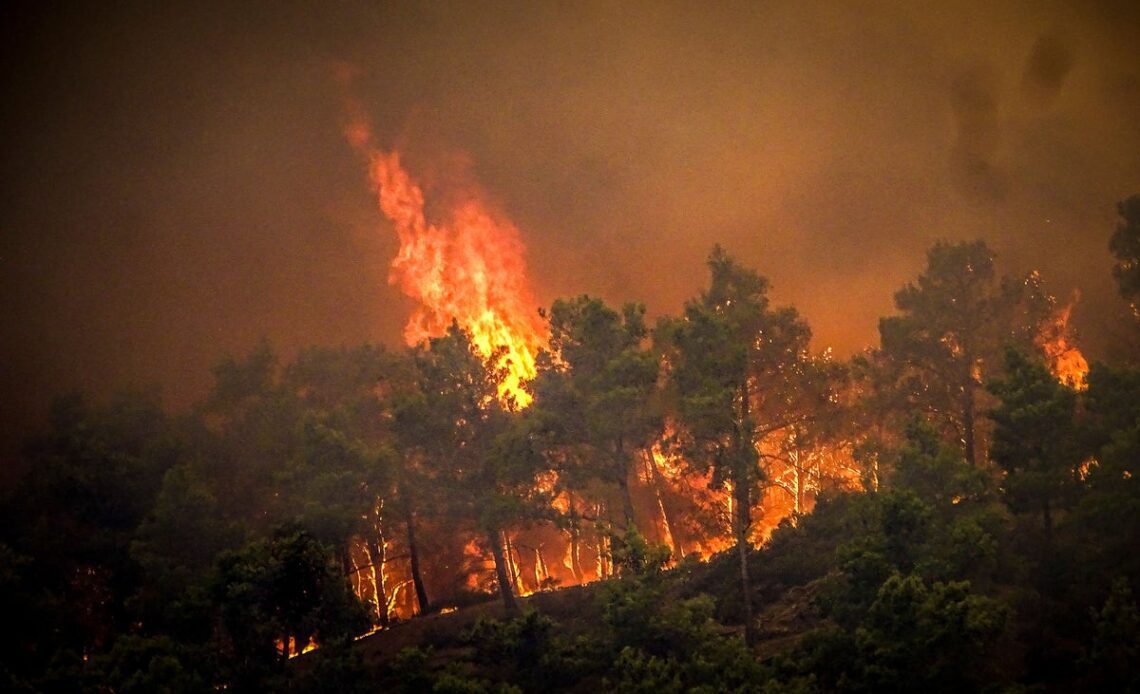The first repatriation flights are due to arrive on fire-ravaged Rhodes to rescue British holidaymakers stuck in a “living nightmare”.
Airline easyJet will operate two rescue flights totalling 421 seats on Monday and a third on Tuesday, in addition to its nine scheduled flights to the Greek island.
It comes after authorities began evacuating large swathes of the island of Corfu, which is also popular with British holidaymakers after fires spread there on Sunday.
Meanwhile, a British Foreign Office spokesman confirmed a Rapid Deployment Team had arrived on Rhodes to support travel operators in bringing Britons home.
Some flights out of Rhodes were delayed on Sunday night, including an easyJet flight due to arrive in Gatwick at 9.00pm which touched down at 11.30pm after stopping for a crew change in Milan.
On Saturday, families fled their hotels, leaving their belongings behind, as the huge flames crawled closer, with some having to spend the night in local stadiums and schools.
Some flight operators, including Tui, continued sending tourists to the island as late as Saturday night, with one customer complaining they had been “abandoned” there.
On Sunday, Tui suspended its flights to Rhodes until Tuesday, while Jet2 Holidays cancelled its trips until next Sunday.
However, easyJet has maintained a regular service along with fellow budget airline Ryanair, prompting criticism from consumers.
A spokeswoman for easyJet said it was doing “all it can” to help customers in Rhodes and invited those due to travel to or from the island until Saturday to change the date for free.
Helen Tonks, a mother of six from Cheshire, said she was flown into a “living nightmare” by Tui at 11.00pm on Saturday and discovered her hotel had been closed.
She said she and her family were “abandoned” and forced to sleep with hundreds of others on a school floor.
Ms Tonks described the decision by airlines to continue their usual service as “inexcusable and negligent – (putting) profit before safety”.
Previously the wildfire had been confined to the island’s mountainous centre but, aided by winds, very high temperatures and dry conditions, it spread on Saturday towards the coast on the island’s central-eastern side.
Greek authorities said 19,000 people had been evacuated, with the Ministry of Climate Change and Civil Protection adding it was “the…
Click Here to Read the Full Original Article at The Independent Travel…
